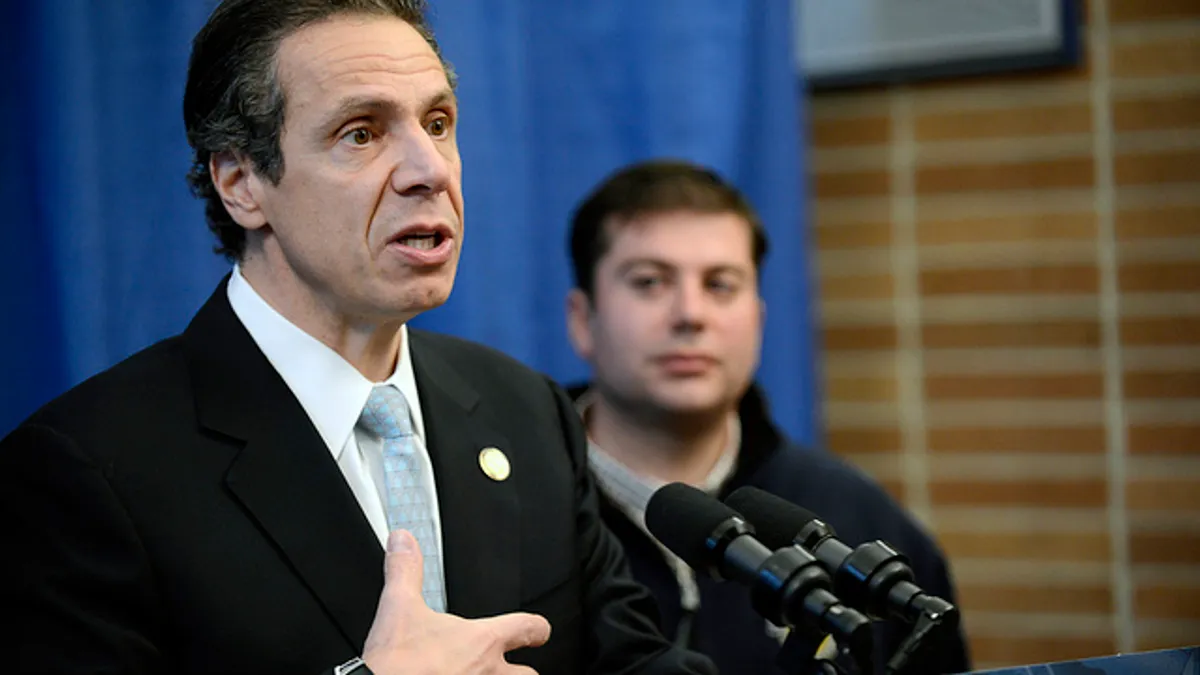Dive Brief:
- New York Gov. Andrew Cuomo has called for a review of the state's energy market, noting that it was not designed for and does not properly value clean energy and distributed resources.
- In his 2015 budget proposal Cuomo directed state regulators to review the New York ISO’s current governance structure and markets, and to make recommendations for design changes to better represent consumers.
- AARP, which represents millions of Americans on fixed incomes, applauded the decision, pointing out that New York consumers pay some of the highest electricity prices in the nation.
Dive Insight:
New York's proposed budget is heavy on solar and wind power, and now Argus Media points out that the governor is also calling for stronger consumer protections in the state's energy markets.
"NYISO’s board of directors does not have adequate public and consumer representation, and are not subject to the same transparency standards as other governmental organizations," according to Cuomo's 2015 Opportunity Agenda. "The PSC will review NYISO’s current governance structure and markets, and make recommendations for governance and market design changes that will better represent consumer interests and facilitate the advancement of the ongoing clean energy policies."
The current wholesale market structure was not designed for the proliferation of clean, distributed energy resources, according to the agenda. "The evidence lies in the limited deployment of demand response in the wholesale energy and ancillary services markets and the eroding penetration of demand response in the capacity market," it says. Renewable energy resources also face financial difficulty operating within the current wholesale market structure.
AARP, which for years has supported stronger consumer representation on the ISO board, applauded the decision.
Cuomo's budget also supports renewable power, provides for community projects to back larger initiatives, and gives tax breaks on solar panels. The governor also wants to reduce energy consumption by 20% in the state's biggest cities and proposed holding a $20 million competition among them to do so.














